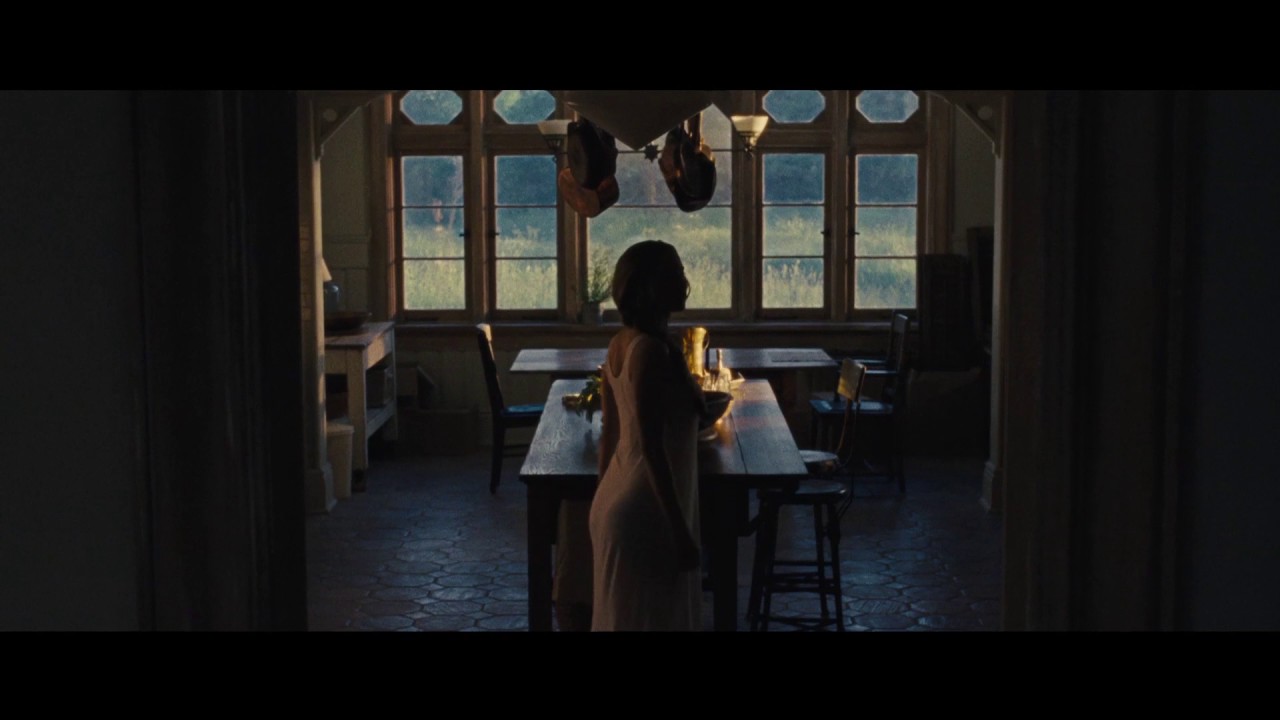The delirious excess and unstable allegories of Darren Aronofsky’s mother! make it both a work of auteurist genius and a second-year term paper by someone who just discovered Borges. Its uncompromising commitment to fever dream logic places it high on the list of Aronofsky’s most essential deep-dives into shallow pools, while also courting charges of both insulting obviousness and self-adoring incomprehensibility. Its images are careful and fraught, and guided by intuitions and half-truths. Its narrative is pure allegory, except for that part where this is completely wrong.
mother! demands to be widely seen (it won’t be), insists on its own thorough decoding (unlikely outside of critical circles), withholds secrets even as they’re uttered aloud. It’s dumb, brilliant, maddening, hilarious, gross, misogynistic, feminist, lovingly assembled, gleefully torn apart, and altogether too much at once.
In other words, it’s a great film, and the most daring studio offering in many, many years.
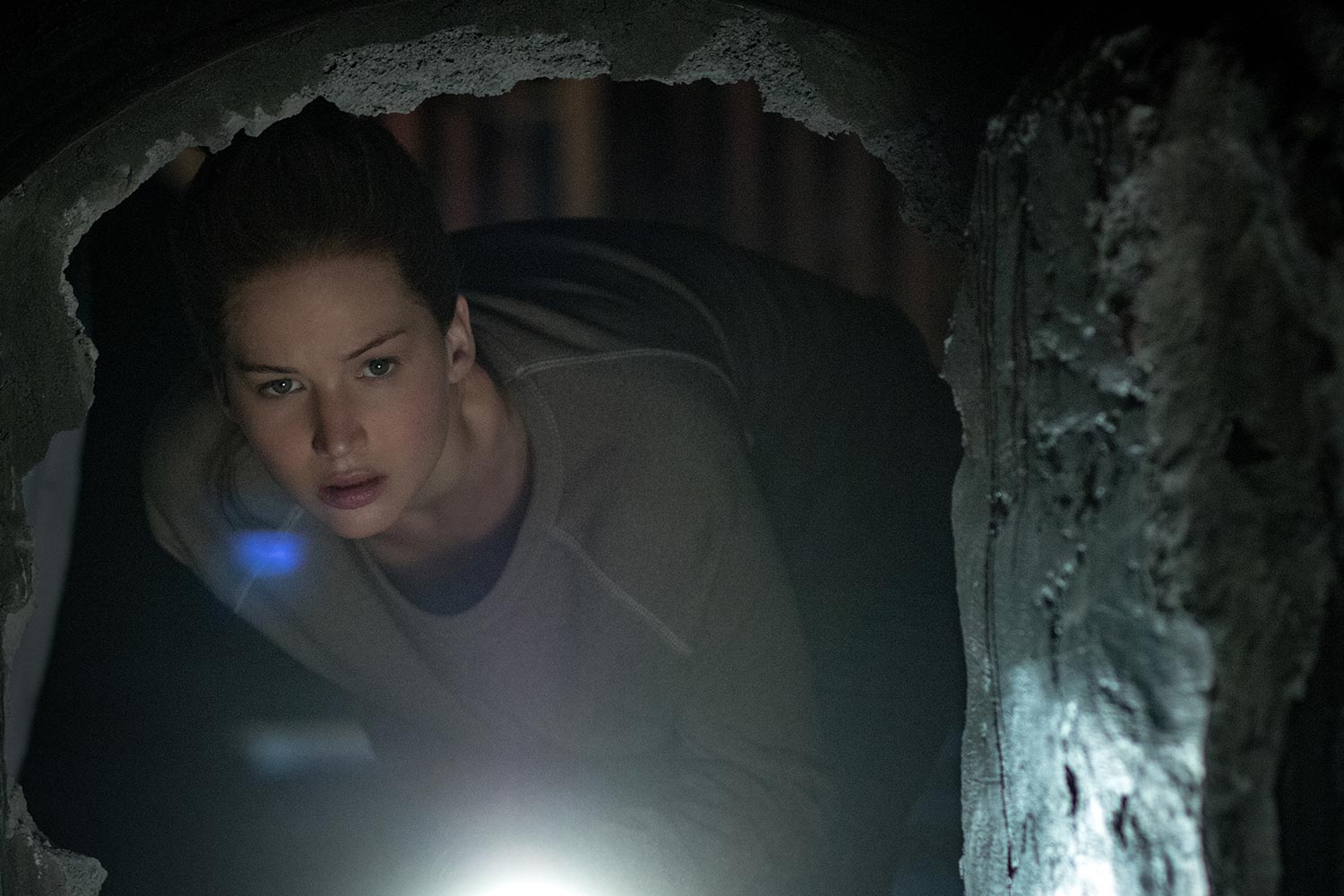
As others have noted, however, mother! is also definitely another thing: nearly impossible to critique without spoilers. (Jonathan Rosenbaum’s observation that we are horrified of spoilers in fiction and cinema because we want to “experience the bliss of being taken there by benevolent parents” acquires a certain, odd aptness in this case.) I’ll give it a spoiler-free go here, with a spoiler-full commentary to come later.
In its narrative heart, mother! is a haunted house story. We are introduced to a woman (Jennifer Lawrence, whose character is not and will not be named until the credits) who is fixing this place up, seemingly from scratch. Her husband (Javier Bardem, credited as Him) has a relation to the house, which we will discover in time.
He’s a once-famous poet stymied by something like writer’s block; we get the sense She (for convenience’s sake, I’ll refer to the Lawrence character with this pronoun) is focused on the house both as a psychic help to him and simply to keep busy, leave him to his work. (She’s also an interior designer, so there’s some internal logic to her massive renovations.)
The house they occupy is surrounded, we can see obliquely through the octagonal windows and a front door that (as far as we can tell) may as well be a portal, is surrounded by an expanse of terrain — fields, trees, sun, but no road or anything approximating civilization. They are way out there, somewhere. Cell service is perpetually down (“Just as we like it,” He’ll note), though they have a landline. From the start, mother!’s setting is indeterminate, and unstable because of it.
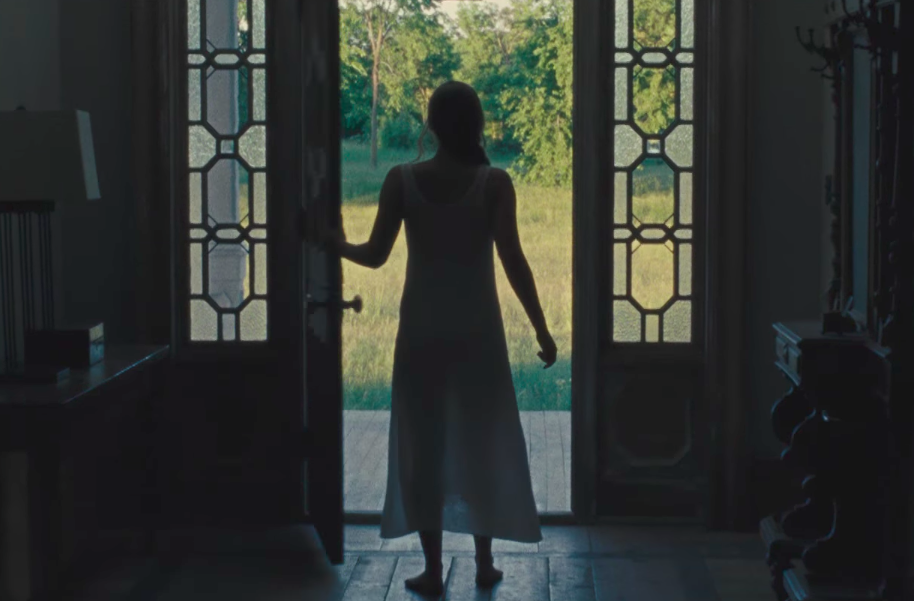
Which makes it even more unusual when a stranger (Ed Harris) arrives. Mistaking this remote locale for a B&B, he chats his way inside. He (Bardem) is pleased to meet a new person, seemingly to take his mind of the work he’s not getting done at his quill-and-ink-adorned writing table (and maybe just to have someone new to talk to in this enormous place). Harris spends the night at His invitation, over Her private objections.
The following day, Harris’ wife (Michelle Pfeiffer) arrives, barreling into this stage-play like a whirlwind of drunken false-friendliness and imposition. The two house guests smoke inside, make messes in every room, eventually break things, have scandalous sex. Worst guests ever. But from here, things get much worse. Effectively, their arrival sends a kind of quiet marital detente into utter chaos. As the number of guests increases, She asks, “Who are these people?”
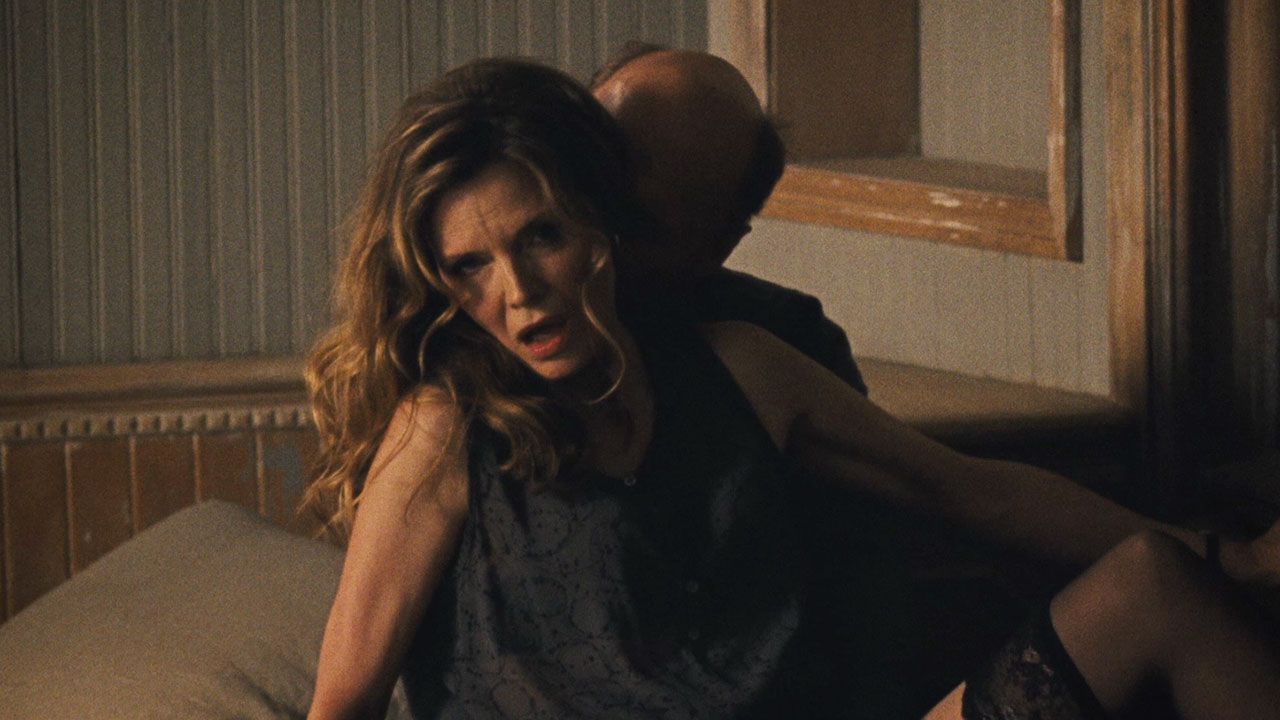
Who indeed.
From here, Aronofsky pours on layers and layers of symbolic meaning that require actual spoilers to properly examine (and watch as they devour themselves in turn). There is violence, and, as the title itself “spoils,” a baby. The first half of the film — which is shot largely in chiaroscuro compositions by Matthew Libatique (Aronofsky’s skilled collaborator for every feature but The Wrestler), jumping back and forth between Caravaggio and Polanski — is all creeping dread. The second half is ecstatic mania. Only 9 people attended my screening, myself included; 3 had left midway through the second half, apparently in disgust.
It’s not hard to see why. Two particular scenes are excruciatingly difficult to watch, and I don’t fault anyone for not much wanting to watch them. By the time the slow-burn horror turns to … something else entirely, we’ve been transported; kidnapped, even. mother! earns that excessive titular punctuation through its own visual and semantic excess.
But as a wobbly, deeply committed encounter with questions of faith, art and the artist, the cruelty of creation, and agency, mother! is a lacerating, and self-lacerating, masterpiece. Poe’s presence is felt, as is that of Charlotte Perkins Gilman. Lawrence, lit from below, appears a Renaissance Madonna and, in eyebrow-to-mid-chin close-up, like Maria Falconetti. Her performance, in eyes and gesture, is at the heart of the film, and it’s remarkably astute. It will also raise questions about the male gaze, and it should.
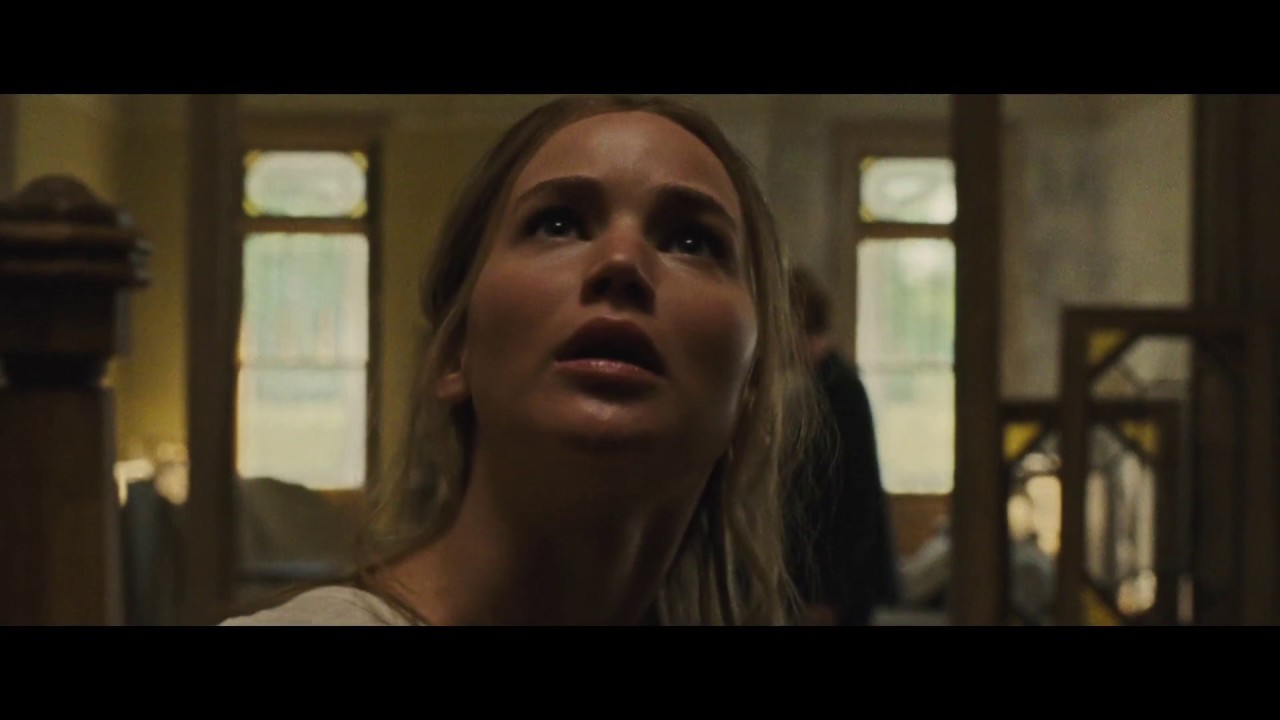
There are few films, certainly few studio films, with so much on their minds. In the internet age, this is generally considered to be a failure of communication on the filmmakers’ part, or a gratuitous lack of concision at least — “the allegory doesn’t work,” we are told. “Here are the things mother! gets wrong.”
But I’ve rarely seen a film so steeped in its own self-aware gratuitousness; those discussions of moral ambivalence miss the tactile rawness of the whole thing. Call it Bible Study Exploitation. And that anger is almost entirely self-directed. mother! is a film at war with itself, guided by anxious, enormously skillful hands, hoping for transcendence and loathing the whole enterprise simultaneously. That’s got to be worth something.

